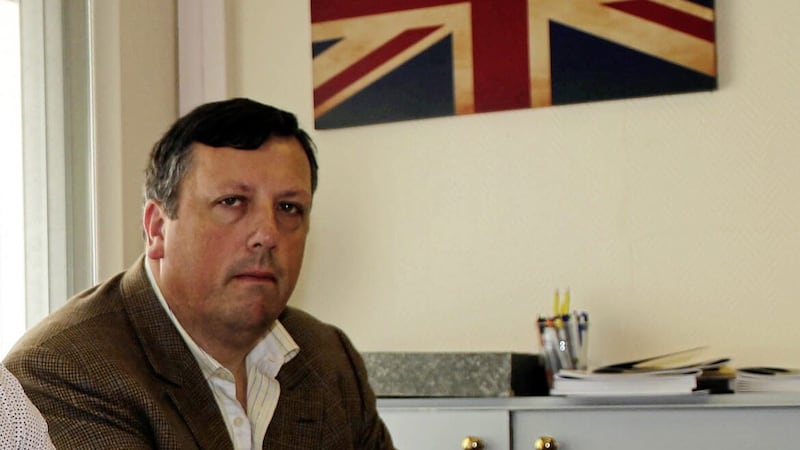I was sitting beside David Campbell, chair of the Loyalist Communities Council, when he was interviewed on BBC’s The View on March 2. There was no doubt in the studio he received a thorough grilling, including on possible loyalist involvement in the shooting of detective chief inspector John Caldwell.
So I have been bemused by the reaction to this interview from nationalists, Alliance and some unionists. Beginning with an outpouring of anger that Campbell appeared at all, it has continued to resonate, leading to the SDLP’s bizarre announcement last week it will boycott the Stephen Nolan show - not because Campbell appeared on Nolan, but because the presenter stopped the SDLP’s Matthew O’Toole complaining about Campbell appearing on The View.
Objections to Northern Ireland’s libel laws should be taken up with the DUP, which blocked reform, and Sinn Féin, which will not help unblock reform.
Sinn Féin is also boycotting Nolan as it did not like being grilled over the Bobby Storey memorial parade. Both parties will now presumably complain there are no nationalists on a programme nationalism is boycotting for grilling or not grilling the wrong or right kind of paramilitaries.
Specific complaints about Campbell’s interview have been just as incoherent.
He was not ‘given a platform’ - if questioning is to be dismissed as platforming, that is the end of journalism.
Some people have asked if Saoradh should be on air as often as the LCC, as if the answer is self-evidently ‘no’. There is no ban on dissident republicans being interviewed, nor should there be. Last year, it emerged Sinn Féin had approached Saoradh in 2020 to discuss a common strategy on a border poll. Outrage at this abated when Sinn Féin reminded everyone this is how the peace process is meant to work.
The general complaint sparked by Campbell’s interview was that it is absurd and offensive for proscribed organisations to still exist 25 years after the Good Friday Agreement, let alone for them to be humoured with time and money to ‘transition’, which is supposedly the LCC’s goal.
But this is also how the peace process is meant to work. Transition is official policy - any objections should be taken up with the five main Stormont parties and the British and Irish governments, who have designed and agreed it. The DUP and Sinn Féin are usually held most responsible for turning this into a financial carve-up, although Alliance is technically most responsible for the policy itself, having held the justice portfolio almost continuously since it was devolved.
To object to the media asking questions is the opposite of holding the policy to account. The Greens have noted LCC silence this week on violence in Newtownards. If Campbell was interviewed on this, would the outrage begin again? The real concern with the LCC, in this regard at least, is that it is only a weak and patchy channel of communication with loyalism. It would be better to grill the brigadiers directly.
At Westminster, following the BBC broadcast, Alliance MP Stephen Farry asked secretary of state Chris Heaton-Harris if the LCC is treated as as “a de facto political party”.
This was an interesting question, although again there was an assumption the correct answer was ‘no’.
“I don’t know what I would formally define the Loyalist Communities Council as,” Heaton-Harris replied.
The Northern Ireland Office spent the first decade of the peace process trying to get people to vote for a loyalist political project. Would success still be welcomed? If not, why not?
A certain kind of well-meaning republican still praises the late David Ervine, who had a gift for telling people what they wanted to hear, even while the UVF ran amok.
Would the LCC be a de facto party, fit for the airwaves, if its chair had a silvery tongue?
Missing from the debate so far has been Northern Ireland’s rights sector.
Media freedom is covered by Article 10 of the European Convention on Human Rights, guaranteeing free expression, opinion and exchange of information, including for state-licensed broadcasters. So it does not matter that we all pay for the BBC: it can interview Campbell, and if criticised for it should expect voices raised in its defence. There are still rights groups complaining about the broadcasting ban on loyalists and republicans 30 years ago.
It is hard not to conclude from this mess that our peace process often rests less on principle than on feelings, leanings and political fashions rationalised after the fact.








